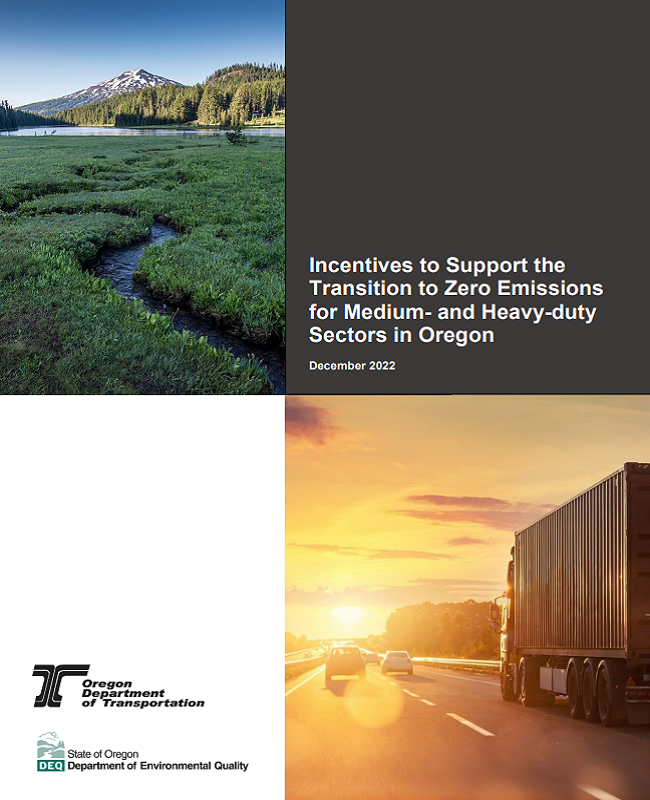The Oregon Legislature tasked the Oregon Department of Environmental Quality and the Oregon Department of Transportation to explore MHD vehicle and charging infrastructure incentive programs that are needed to transition from gasoline or diesel to electricity or hydrogen. This report presents information from existing state programs, best practices from Northeast States for Coordinated Air Use Management and input from stakeholders.
The study’s review of Oregon and federal incentives to speed adoption of MHD ZEV found that the existing state and federal grant programs are insufficient, offering funding in Oregon for only a few dozen vehicles and accompanying charging infrastructure each year. Recent federal legislation provides funding and incentives that will encourage the transition to ZEV particularly for school buses, transit buses, and port-related equipment. Oregon’s Clean Fuels Program provides incentives to fleets that use lower-carbon fuels like electricity and hydrogen. However, more is needed.
This report’s findings include feedback from fleet owners, manufacturers, non-profits and other interested parties. There is strong support for state level incentives now to reduce costs, speed adoption and meet regulatory requirements for MHD ZEV adoption. Also, since other west coast states offer ZEV MHD incentive programs to reduce ZEV vehicle and infrastructure costs, MHD manufacturers and fleets owners expressed concern that Oregon could be at a competitive disadvantage. To increase adoption, the agencies encourage incentive programs that: • Can be established quickly and are flexible to reflect the changing ZEV ecosystem now and in the futur
Preview the report here:
